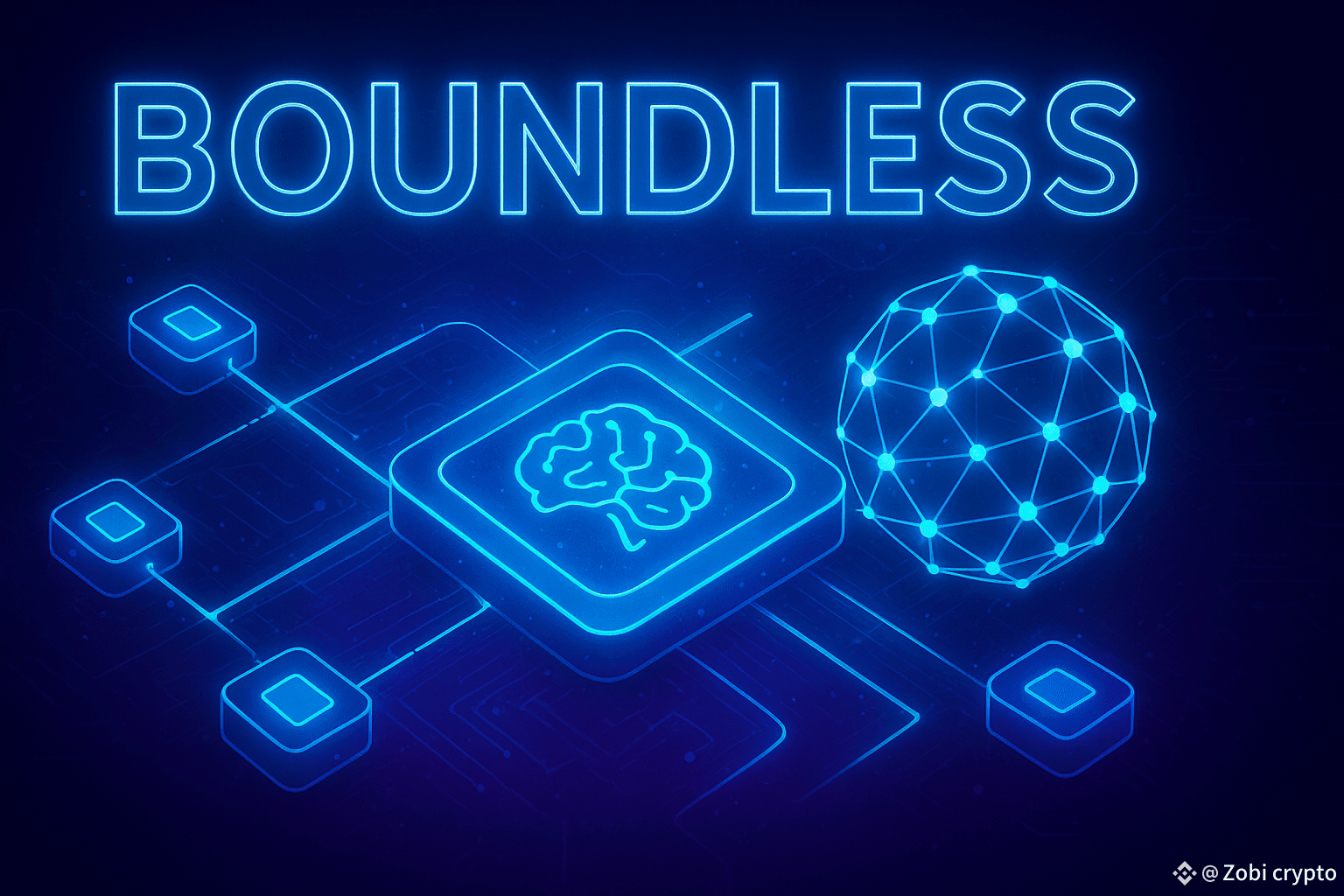
The blockchain ecosystem is growing faster than ever, powering decentralized finance, gaming, NFTs, and countless applications. But there’s a challenge that slows progress: secure, fast, and scalable proof generation. Proofs are what validate transactions and actions on a blockchain, but generating them can be slow, costly, and complex. This is where Boundless comes in, redefining how blockchain networks, applications, and rollups operate.
Boundless is a zero-knowledge proving infrastructure, built to make proof generation and verification seamless, efficient, and scalable. Using advanced zkVM technology, Boundless allows computationally heavy tasks to be handled off-chain, while verification remains on-chain, reducing costs, speeding up transactions, and enabling networks to interoperate without friction.
🔹 How Boundless Works
Traditionally, each blockchain needs its own system to generate proofs. This approach is inefficient, expensive, and limits scalability. Boundless changes the game by introducing a system where external prover nodes handle the bulk of computation. These nodes generate proofs for transactions and applications off-chain, and then the blockchain verifies them quickly and securely.
This approach has several key benefits:
1. Efficiency – Blockchains no longer need to process every computation themselves, freeing up resources and enabling faster transaction speeds.
2. Cost-Effectiveness – Heavy computational work happens off-chain, meaning users pay lower fees and networks save money.
3. Scalability – Boundless can support multiple blockchains, applications, and rollups simultaneously, making it easier for developers to build large-scale projects.
4. Interoperability – Different blockchain networks can now communicate and work together more smoothly, thanks to a universal proving infrastructure.
🔹 zkVM Technology: The Heart of Boundless
At the core of Boundless is zkVM (Zero-Knowledge Virtual Machine) technology, a breakthrough that allows computation to move off-chain without compromising security or trustlessness. This ensures that:
Transactions remain secure and private
Verification is fast and reliable
Developers can focus on innovation, not infrastructure
This makes Boundless not just a tool, but a platform for the next generation of decentralized applications (dApps), DeFi protocols, and blockchain-based games.
🔹 Real-World Use Cases
Boundless isn’t theoretical—it has practical applications that can transform the blockchain ecosystem:
DeFi Platforms – Faster proof generation reduces delays in yield farming, lending, and trading, while lowering transaction costs.
NFT Marketplaces – High-volume minting and transfers become seamless, even during traffic spikes.
Gaming – Blockchain-based games can handle thousands of players and in-game transactions in real time.
Cross-Chain Applications – Developers can create apps that work across multiple blockchains without building separate proof systems for each.
🔹 Why Boundless Matters
Blockchain technology has always faced a trade-off: security vs. speed vs. cost. Boundless addresses all three by providing:
Faster transactions – Proofs are generated off-chain and verified quickly.
Lower fees – Computational costs are reduced, saving users money.
Scalable infrastructure – Supports multiple chains and applications simultaneously.
Universal compatibility – Enables seamless interaction between different networks.
In other words, Boundless makes blockchain technology more accessible, more efficient, and more powerful than ever before.
🔹 The Future of Blockchain With Boundless
Boundless is more than just a proving system—it’s a foundation for the next generation of blockchain innovation. By moving heavy computation off-chain, enabling interoperability, and maintaining high security, it opens doors for:
Mass adoption of decentralized applications
Complex DeFi and NFT systems without bottlenecks
Faster, cheaper, and more reliable blockchain networks
Truly scalable rollups and cross-chain solutions
Boundless is shaping a world where developers can dream bigger, users can transact faster and cheaper, and blockchains can work together seamlessly. The possibilities are limitless, and the future of decentralized technology is here.